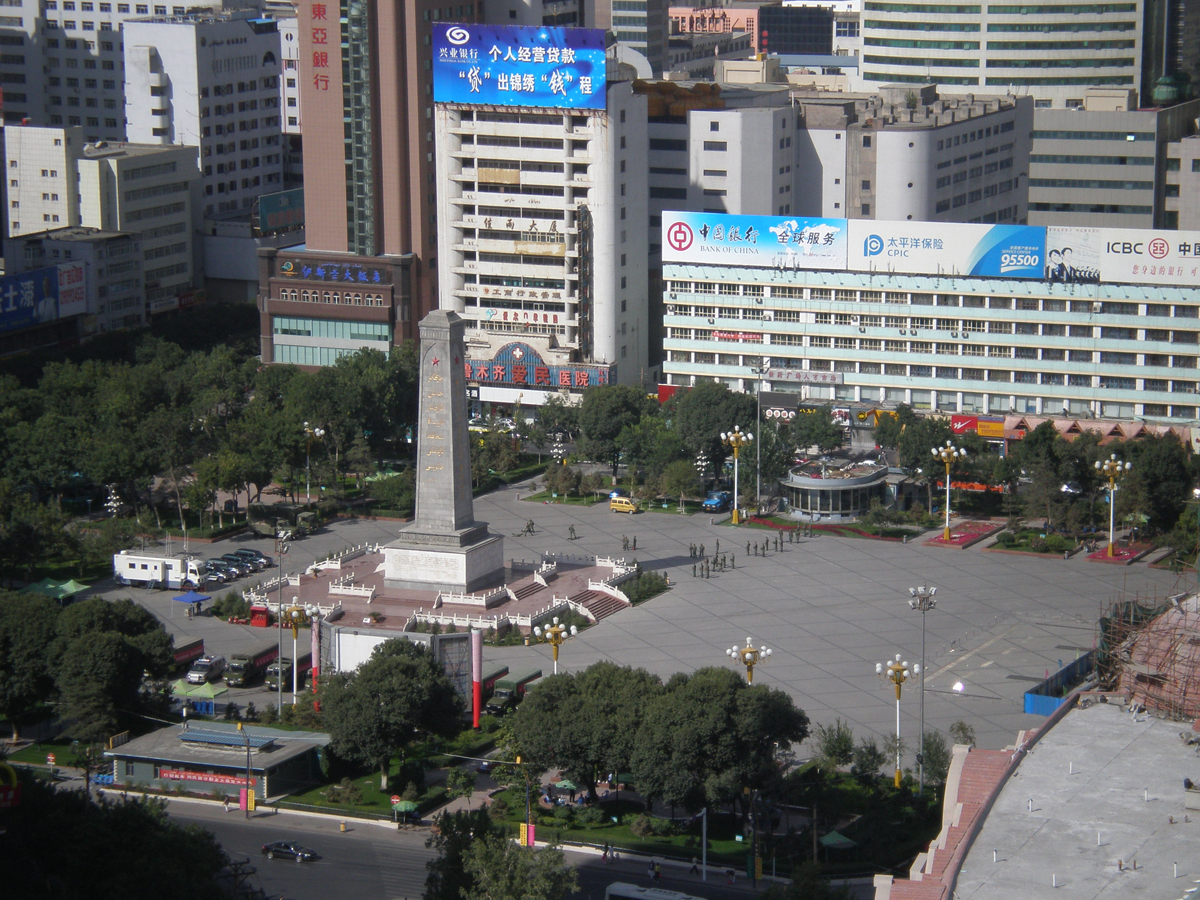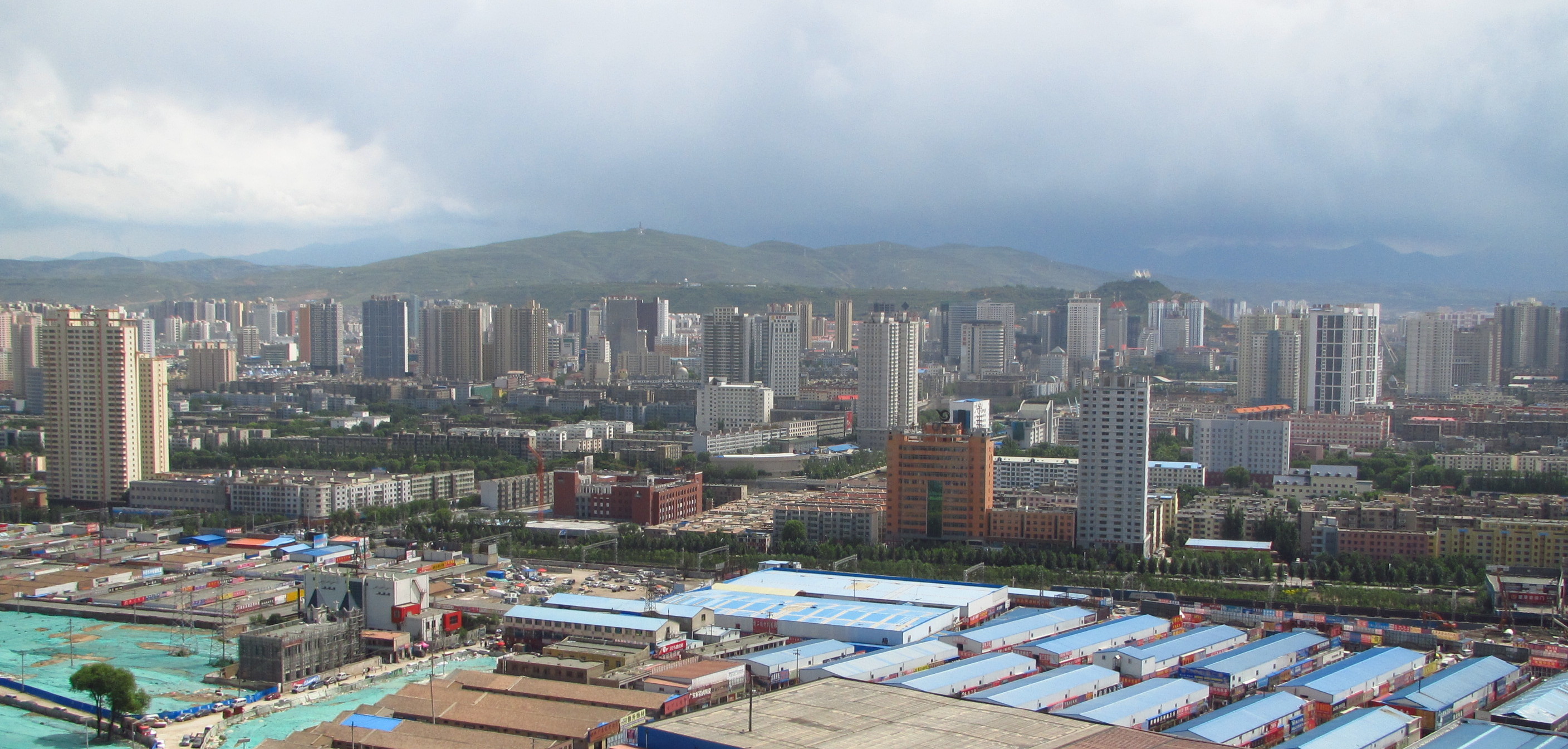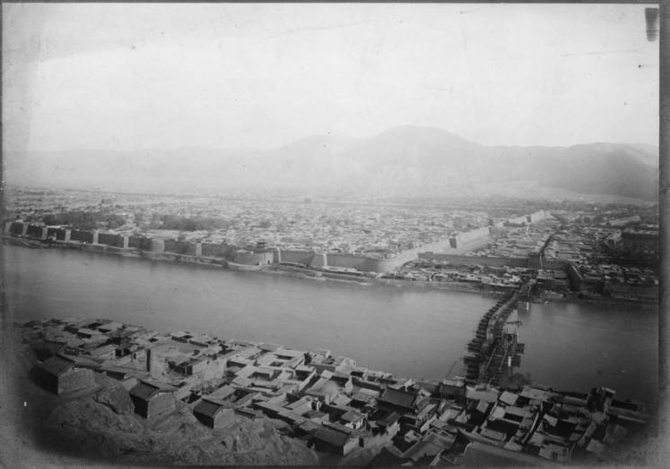|
1989 Ürümqi Unrest
The 1989 Ürümqi unrest, also known as the 19 May riots in Ürümqi () took place in the city of Ürümqi, capital of Xinjiang in China in May 1989, which began with Muslim protesters marched and finally escalated into violent attack against Xinjiang CPC office tower at People's Square on 19 May 1989. The immediate cause was a book called ''Sexual Customs'' () published in March 1989 which purported to describe the sexual life of Muslims and contained a number of controversial passages comparing Islamic architecture to various sexual features. This caused protests from Hui people in Gansu, Ningxia and Xinjiang. The protesters, mainly Uyghur and Hui, initially an conducted orderly march in the previous days and demanded for the government to destroy ''Sexual Customs'' and punish the two authors of the book (who used the pseudonyms "Ke Le" and "Sang Ya"), who were compared to Salman Rushdie in a reference to the controversy around ''The Satanic Verses''. However, the protest en ... [...More Info...] [...Related Items...] OR: [Wikipedia] [Google] [Baidu] |
People's Square (Ürümqi)
People's Square of Ürümqi ( zh, s=乌鲁木齐市人民广场, t=烏魯木齊市人民廣場; ug, ئۈرۈمچى خەلق مەيدىنى, lat=Ürümchi Xelq Meydini, ucy=Үрүмчи Хелқ Мейдини) is a large public square located around the major intersections of Central Business District of Ürümqi, the capital of Xinjiang Uyghur Autonomous Region, China. Located in Tianshan District, it is a primary tourist destination in the city and is also used to hold large events and serves as a general place of daily amusement for local residents. History During the Qing dynasty, the original site was a lotus pool. In 1934, it was a property land of the supervision administration office of ROC government. The area was named "Peace Square" in 1946 when the then Xinjiang provincial government peacefully negotiated with the revolutionary governments of Ili, Tacheng and Altay and the name was changed into "People's Square" in 1950. On May 19, 1989, unrest took place on the s ... [...More Info...] [...Related Items...] OR: [Wikipedia] [Google] [Baidu] |
Ethnic Minorities In China
Ethnic minorities in China are the non-Han Chinese, Han population in the People's Republic of China (PRC). The PRC officially recognizes 55 minority group, ethnic minority groups within China in addition to the Han majority. As of 2010, the combined population of officially-recognized minority groups comprised 8.49% of the population of mainland China. In addition to these officially-recognized ethnic minority groups, there are Chinese nationals who privately classify themselves as members of unrecognized ethnic groups in China, unrecognized ethnic groups, such as the very small Chinese history of the Jews in China, Jewish, Tuvans, Tuvan, and Ili Turk people, Ili Turk communities, as well as the much larger Oirats, Oirat and Japanese people in China, Japanese communities. In Chinese, 'ethnic minority' has translated to (), wherein () means 'Nationalities (ethnic affiliations), nationality' or 'nation' (as in ethnic group)—in line with the Soviet concept of ethnicity—a ... [...More Info...] [...Related Items...] OR: [Wikipedia] [Google] [Baidu] |
1989 In China
Events in the year 1989 in the People's Republic of China. Incumbents * General Secretary of the Chinese Communist Party - Zhao Ziyang until June 24, Jiang Zemin * President – Yang Shangkun * Premier – Li Peng * Vice President – Wang Zhen * Vice Premier – Yao Yilin * Congress Chairman - Wan Li * Conference Chairman - Li Xiannian Governors * Governor of Anhui Province – Li Rongling then Fu Xishou * Governor of Fujian Province – Wang Zhaoguo * Governor of Gansu Province – Jia Zhijie * Governor of Guangdong Province – Ye Xuanping * Governor of Guizhou Province – Wang Zhaowen * Governor of Hainan Province – Liu Jianfeng * Governor of Hebei Province – Yue Qifeng * Governor of Heilongjiang Province – Hou Jie then Shao Qihui * Governor of Henan Province – Cheng Weigao * Governor of Hubei Province – Guo Zhenqian * Governor of Hunan Province – Xiong Qingquan then Chen Bangzhu * G ... [...More Info...] [...Related Items...] OR: [Wikipedia] [Google] [Baidu] |
Riots And Civil Disorder In China
A riot is a form of civil disorder commonly characterized by a group lashing out in a violent public disturbance against authority, property, or people. Riots typically involve destruction of property, public or private. The property targeted varies depending on the riot and the inclinations of those involved. Targets can include shops, cars, restaurants, state-owned institutions, and religious buildings. Riots often occur in reaction to a grievance or out of dissent. Historically, riots have occurred due to poverty, unemployment, poor living conditions, governmental oppression, taxation or conscription, conflicts between ethnic groups (race riot) or religions (sectarian violence, pogrom), the outcome of a sporting event (sports riot, football hooliganism) or frustration with legal channels through which to air grievances. While individuals may attempt to lead or control a riot, riots typically consist of disorganized groups that are frequently "chaotic and exhibit herd beha ... [...More Info...] [...Related Items...] OR: [Wikipedia] [Google] [Baidu] |
Protests In China
In spite of restrictions on freedom of association, particularly in the decades since the death of Mao Zedong in 1976, there have been incidents of protest and dissent in China. Among the most notable of these were the 1959 Tibetan uprising against Chinese Communist Party (CCP) rule, the 1989 Tiananmen Square protests, which were put down with brutal military force, the 25 April 1999 demonstration by 10,000 Falun Gong practitioners at Zhongnanhai, and the 2022 Protests against COVID-19 lockdowns in China, protests against COVID-19 lockdowns. Protesters and dissidents in China espouse a wide variety of grievances, including corruption, Forced evictions in China, forced evictions, unpaid wages, human rights in China, human rights abuses, environmental issues in China, environmental degradation, ethnic protests, petitioning for religious freedom and civil liberties, protests against one-party rule, as well as nationalist protests against foreign countries. The number of annual prot ... [...More Info...] [...Related Items...] OR: [Wikipedia] [Google] [Baidu] |
1989 Riots
File:1989 Events Collage.png, From left, clockwise: The Cypress Street Viaduct, Cypress structure collapses as a result of the 1989 Loma Prieta earthquake, killing motorists below; The proposal document for the World Wide Web is submitted; The Exxon Valdez oil tanker runs aground in Prince William Sound, Alaska, causing a large Exxon Valdez oil spill, oil spill; The Fall of the Berlin Wall begins the downfall of Communism in Eastern Europe, and heralds German reunification; The United States United States invasion of Panama, invades Panama to depose Manuel Noriega; The Singing Revolution led to the independence of the Baltic states of Estonia, Latvia, and Lithuania from the Soviet Union; The stands of Hillsborough Stadium in Sheffield, Yorkshire, where the Hillsborough disaster occurred; 1989 Tiananmen Square protests and massacre, Students demonstrate in Tiananmen Square, Beijing; many are killed by forces of the Chinese Communist Party., 300x300px, thumb rect 0 0 200 200 1989 Loma ... [...More Info...] [...Related Items...] OR: [Wikipedia] [Google] [Baidu] |
History Of Ürümqi
History (derived ) is the systematic study and the documentation of the human activity. The time period of event before the invention of writing systems is considered prehistory. "History" is an umbrella term comprising past events as well as the memory, discovery, collection, organization, presentation, and interpretation of these events. Historians seek knowledge of the past using historical sources such as written documents, oral accounts, art and material artifacts, and ecological markers. History is not complete and still has debatable mysteries. History is also an academic discipline which uses narrative to describe, examine, question, and analyze past events, and investigate their patterns of cause and effect. Historians often debate which narrative best explains an event, as well as the significance of different causes and effects. Historians also debate the nature of history as an end in itself, as well as its usefulness to give perspective on the problems of the ... [...More Info...] [...Related Items...] OR: [Wikipedia] [Google] [Baidu] |
July 2009 Ürümqi Riots
The July 2009 Ürümqi riots were a series of violent riots over several days that broke out on 5 July 2009 in Ürümqi, the capital city of the Xinjiang Uyghur Autonomous Region (XUAR), in northwestern China. The first day's rioting, which involved at least 1,000 Uyghurs, began as a protest but escalated into violent attacks that mainly targeted Han Chinese. A total of 197 people died, most of whom were Han people or non-Muslim minorities, with 1,721 others injured and many vehicles and buildings destroyed. Many Uyghurs disappeared during wide-scale police sweeps in the days following the riots; Human Rights Watch (HRW) documented 43 cases and said figures for real disappearances were likely to be much higher. Rioting began following the Shaoguan incident where false accusations of rape of Han Chinese woman by Uyghur men led to a brawl between ethnic Han and Uyghur factory workers in Shaoguan that resulted in the deaths of two Uyghurs who were both from Xinjiang. The Chines ... [...More Info...] [...Related Items...] OR: [Wikipedia] [Google] [Baidu] |
Xining
Xining (; ), alternatively known as Sining, is the capital of Qinghai province in western China and the largest city on the Tibetan Plateau. The city was a commercial hub along the Northern Silk Road's Hexi Corridor for over 2000 years, and was a stronghold of the Han, Sui, Tang dynasty, Tang, and Song dynasty, Song dynasties' resistance against nomadic attacks from the west. Although long a part of Gansu province, Xining was added to Qinghai in 1928. Xining holds sites of religious significance to Muslims and Buddhists, including the Dongguan Mosque and Ta'er Monastery. The city lies in the Huangshui River valley, and owing to its high altitude, has a cool climate on the borderline between Semi-arid climate#Cold semi-arid climates, cool semi-arid and dry winter humid continental climate, humid continental. It is Qinghai–Tibet railway, connected by rail to Lhasa, Tibet Autonomous Region, Tibet and Lanzhou-Xinjiang High-Speed Railway, connected by high-speed rail to Lanzhou, G ... [...More Info...] [...Related Items...] OR: [Wikipedia] [Google] [Baidu] |
Lanzhou
Lanzhou (, ; ) is the capital and largest city of Gansu Province in Northwest China. Located on the banks of the Yellow River, it is a key regional transportation hub, connecting areas further west by rail to the eastern half of the country. Historically, it has been a major link on the Northern Silk Road and it stands to become a major hub on the New Eurasian Land Bridge. The city is also a center for heavy industry and petrochemical industry. Lanzhou is one of the top 70 major cities in the world by scientific research output as tracked by the Nature Index. The city hosts several research institutions, including, Lanzhou University, Lanzhou University of Technology, Northwest Normal University, Lanzhou Jiaotong University, Gansu University of Chinese Medicine, and Gansu Agricultural University. Notably, Lanzhou University is one of China's prestige universities as a member of the Project 985. History Originally in the territory of the ancient Western Qiangs, Lanzhou ... [...More Info...] [...Related Items...] OR: [Wikipedia] [Google] [Baidu] |
The Satanic Verses Controversy
The ''Satanic Verses'' controversy, also known as the Rushdie Affair, was a controversy sparked by the 1988 publication of Salman Rushdie's novel ''The Satanic Verses''. It centered on the novel's references to the Satanic Verses of the Quran, and came to include a larger debate about censorship and religious violence. It included numerous killings, attempted killings (including against Rushdie himself), and bombings by perpetrators who supported Islam. The affair had a notable impact on geopolitics when, in 1989, Ruhollah Khomeini, Supreme Leader of Iran, issued a fatwa ordering Muslims to kill Rushdie. The Iranian government has changed its support for the fatwa several times, including in 1998 when Mohammad Khatami said the regime no longer supported it. However, a fatwa cannot be revoked in Shia Islamic tradition. In 2017, a statement was published on the official website of the current supreme leader Ayatollah Khamenei, stating that "the decree is as Imam Khomeini (ra ... [...More Info...] [...Related Items...] OR: [Wikipedia] [Google] [Baidu] |




.jpg)

